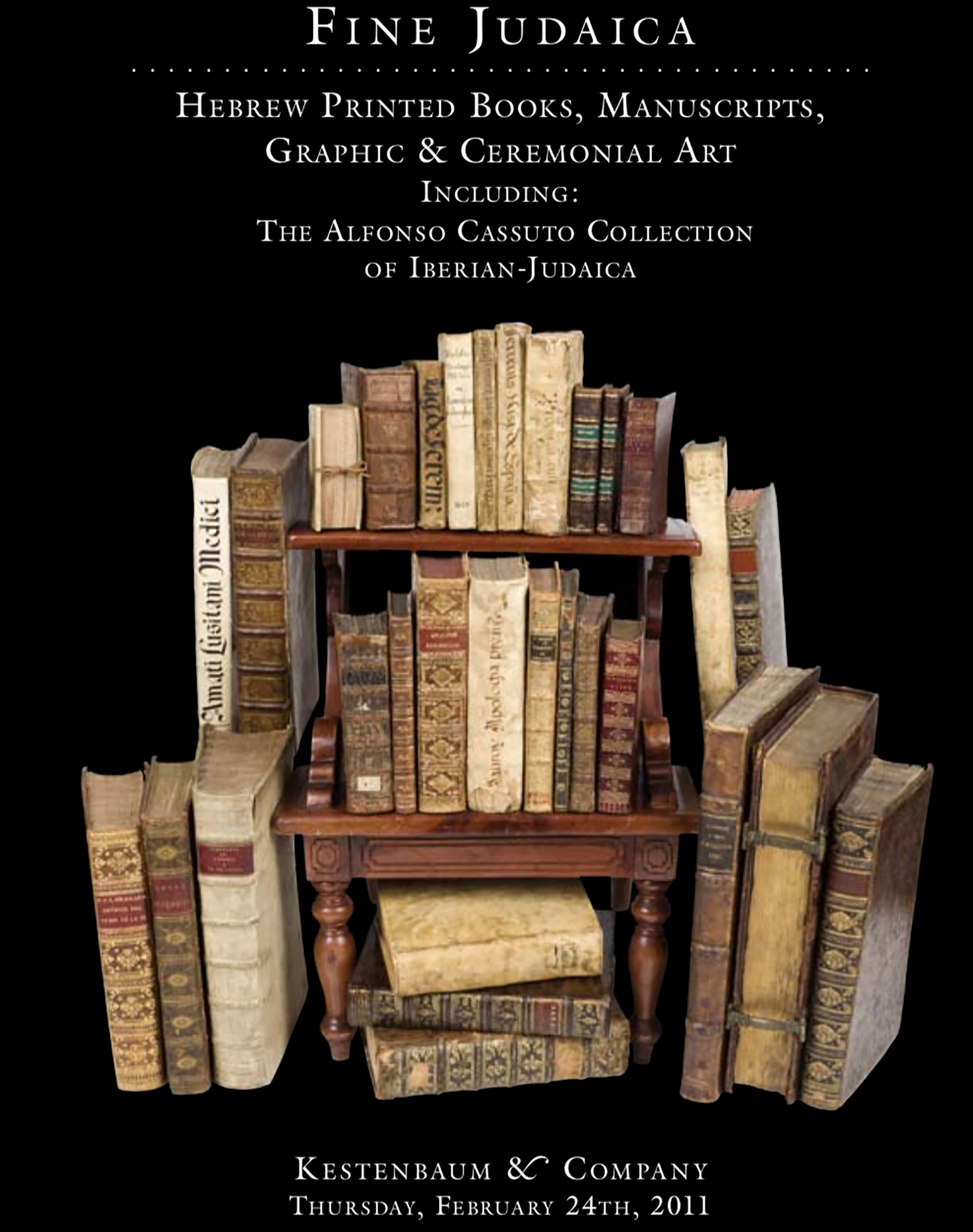De Veritate Religionis Christianae. Amica Collatio cum Erudito Judaeo. [“A Friendly Discussion with a Learned Jew about the Truth of the Christian Religion.”] * Appended: Acosta, Uriel. Exemplar Humanae Vitae [“The Ideal of Human Life.”].

AUCTION 50 |
Thursday, February 24th,
2011 at 1:00
Fine Judaica: Hebrew Printed Books, Manuscripts, Graphic & Ceremonial Art Including: The Alfonso Cassuto Collection of Iberian Art
Lot 314
LIMBORCH, PHILIPP VAN.
De Veritate Religionis Christianae. Amica Collatio cum Erudito Judaeo. [“A Friendly Discussion with a Learned Jew about the Truth of the Christian Religion.”] * Appended: Acosta, Uriel. Exemplar Humanae Vitae [“The Ideal of Human Life.”].
Gouda: Justum Ab Hoeve 1687
Est: $800 - $1,200
Philipp van Limborch (1633-1712), a Dutch Calvinist theologian, was professor at the Remonstrant Seminary in Amsterdam. This volume records the religious disputation between Limborch and Isaac (Balthazar) Orobio de Castro (1620-87), a writer of philosophical treatises in defense of Judaism and one of the leading intellectual figures among the Spanish and Portuguese Jews newly arrived to Amsterdam.
“This is perhaps the first dispute between two theologians in which no insults are traded; on the contrary, the two adversaries treat each other with respect.” See M. H. Gans, Memorbook (1977), p. 85.
The first appearance of Uriel da Costa’s autobiography is appended to Limborch’s work (pp. 341-54). Da Costa or Acosta (1585-1640) was born in Oporto, Portugal and studied law at the Jesuit University of Coimbra (1600-1608). As a crypto-Jew, Da Costa sacrificed much for his Judaism, however, upon reentry to the Jewish community in Amsterdam, he was unable to reconcile himself to Rabbinic Judaism, which was so different from the purely Biblical Judaism he was familar with. As a result of his "Eleven Criticisms of the Oral Law, " Uriel Da Costa was excommunicated by the Portuguese community of Amsterdam in 1623. Da Costa took his own life in 1640. He was a tragic figure who had abandoned the world of Iberian Christianity yet unable or unwilling to reconcile himself with Rabbinic Judaism. See JNUL Catalogue, The Portuguese Community of Amsterdam in the 17th Century (1975) nos. 130 and 138.
